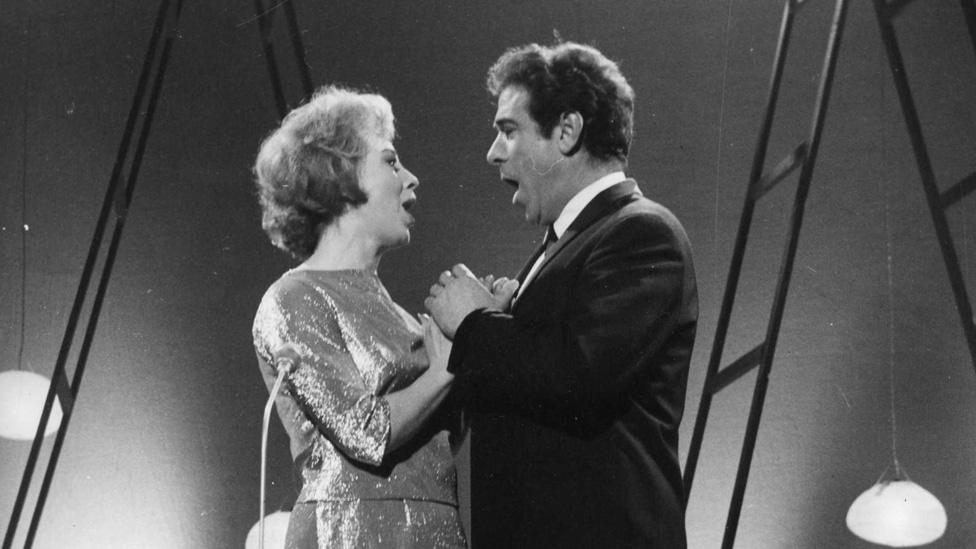UK's first Eurovision singer Patricia Bredin remembered
- Published
The story of the UK's first Eurovision Song Contest, Patricia Bredin from Hull
This year's Eurovision Song Contest in Stockholm will feature the UK's 60th song to vie for glory in the competition's history.
Back in 1957 though, things looked a little different - not least because only 10 countries entered, an increase of three on the contest's debut the year before.
That year the UK was represented by the unknown Patricia Bredin from Hull, singing a love song called All.
She ended up in seventh place, her six points outshone by Netherlands' entrant Corry Brokken, who took the crown with 31 points.
Despite the setback Ms Bredin, then 22, went on to have a long career on stage and screen before retiring to a farm in Canada.
Now aged in her 80s, Ms Bredin has clear memories of her performance.
Speaking to BBC Radio Humberside, she said: "Singing in the final in Frankfurt, Germany it was wonderful, because they had about a 60 piece orchestra and it was like being on clouds."
Song never recorded
Ms Bredin grew up in west Hull and attended the Newland School for Girls.
Her singing career began as a member of the Hull Operatic Society, performing in shows at the City Hall and other venues.
She landed the Eurovision chance after being spotted singing at London's Savoy Hotel.
And a short meeting with BBC executives, who asked her "Would you like to be on TV?", was all it took to get the job.
"Two songs had been chosen and each one had to be sung by two different performers, but they had a problem because nobody wanted to sing that terrible little song called All," she said.

Patricia Bredin was a regular performer on stage and screen
The song was less than two minutes long and despite her performance being broadcast on TV, the public did not have an opportunity to send it into the charts as she never recorded it.
John Kennedy O'Connor, author of the official history of the Eurovision Song Contest, said the contest then did not have the media focus it enjoys now.
"It was a much more formal process that it is now and a much more formal type of show," he said.
"At that time the contest just didn't mean anything to anybody. So I don't think she really benefited from it."
But, Ms Bredin became a regular in musicals in the West End and on Broadway, once taking over a role from Julie Andrews.
'Wonderful career'
She also acted in a number of British films, appearing alongside Ian Carmichael and Sid James.
And, while singing on the liner QE2 in the 1960s, she met Canadian millionaire Charles MacCulloch. The pair married and moved to a farm in Nova Scotia.
She was widowed soon after the wedding and remained in Canada raising cattle.
Reflecting on her Eurovision appearance, she said she was just pleased to still be remembered.
"I had a wonderful career and enjoyed it and you go on to something else," she said.
"Now just existing is my primary priority."
Listen to BBC Radio Humberside's documentary on Hull's Song for Europe on the BBC iPlayer.